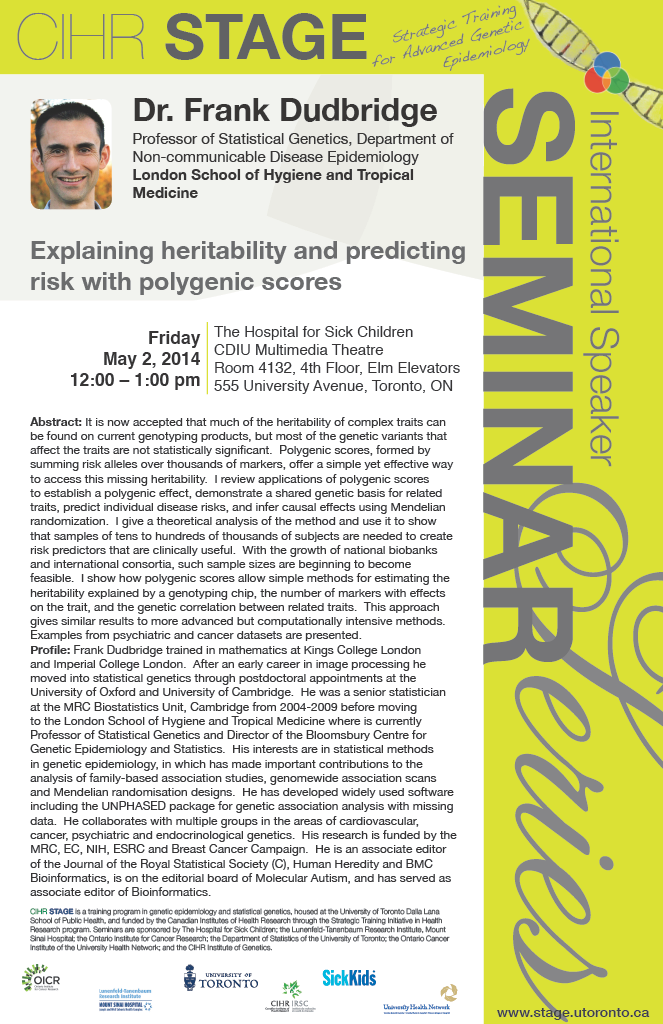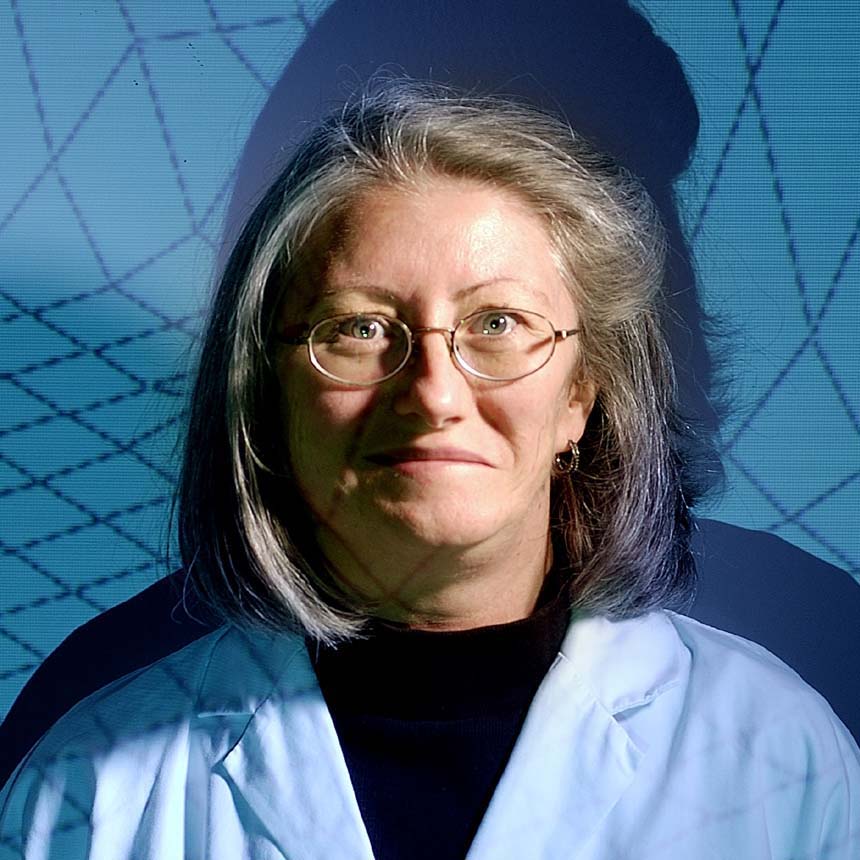
Join us for the next instalment of the STAGE International Speaker Seminar Series (ISSS) with
Frank Dudbridge
Professor of Statistical Genetics, Department of Non-communicable Disease Epidemiology, London School of Hygiene and Tropical Medicine
Talk Title:
Explaining heritability and predicting risk with polygenic scores
Abstract:
It is now accepted that much of the heritability of complex traits can be found on current genotyping products, but most of the genetic variants that affect the traits are not statistically significant. Polygenic scores, formed by summing risk alleles over thousands of markers, offer a simple yet effective way to access this missing heritability. I review applications of polygenic scores to establish a polygenic effect, demonstrate a shared genetic basis for related traits, predict individual disease risks, and infer causal effects using Mendelian randomization. I give a theoretical analysis of the method and use it to show that samples of tens to hundreds of thousands of subjects are needed to create risk predictors that are clinically useful. With the growth of national biobanks and international consortia, such sample sizes are beginning to become feasible. I show how polygenic scores allow simple methods for estimating the heritability explained by a genotyping chip, the number of markers with effects on the trait, and the genetic correlation between related traits. This approach gives similar results to more advanced but computationally intensive methods. Examples from Psychiatric and cancer datasets are presented.
Speaker Profile:
Frank Dudbridge trained in mathematics at Kings College London and Imperial College London. After an early career in image processing he moved into statistical genetics through postdoctoral appointments at the University of Oxford and University of Cambridge. He was a senior statistician at the MRC Biostatistics Unit, Cambridge from 2004-2009 before moving to the London School of Hygiene and Tropical Medicine where is currently Professor of Statistical Genetics and Director of the Bloomsbury Centre for Genetic Epidemiology and Statistics. His interests are in statistical methods in genetic epidemiology, in which has made important contributions to the analysis of family-based association studies, genome-wide association scans and Mendelian randomisation designs. He has developed widely used software including the UNPHASED package for genetic association analysis with missing data. He collaborates with multiple groups in the areas of cardiovascular, cancer, psychiatric and endocrinological genetics. His research is funded by the MRC, EC, NIH, ESRC and Breast Cancer Campaign. He is an associate editor of the Journal of the Royal Statistical Society (C), Human Heredity and BMC Bioinformatics, is on the editorial board of Molecular Autism, and has served as associate editor of Bioinformatics.
Speaker Poster:

Photography Disclosure:
Photographs and/or video may be taken of participants at STAGE events. These photos/videos are for the Program’s use only and may appear on its website, in printed brochures, or in other promotional or reporting materials. By attending STAGE events, you accept the possibility that you may be videotaped or photographed. If you have any concerns, please inform us by sending an e-mail to esther.berzunza@utoronto.ca
The event is finished.
Local Time
- Timezone: America/New_York
- Date: May 02 2014
- Time: 12:00 pm - 1:00 pm
Location

Organizer
CANSSI Ontario
Website
https://canssiontario.utoronto.ca/Moderator

-
Shelley Bull
-
Professor at University of Toronto, Dalla Lana School of Public Health Senior Investigator at Sinai Health, Lundenfeld-Tanenbaum Research Institute